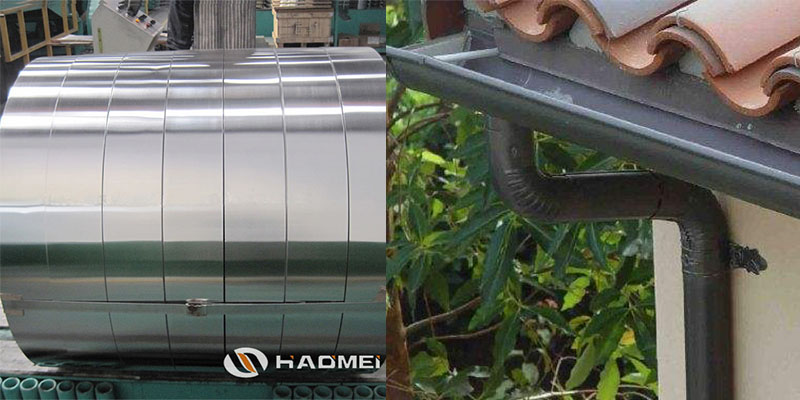Aluminium Strip 1mm Used for Gutter
December 24, 2018
Rain water gutters play an irreplaceable role in modern construction. Generally speaking, there are two types of raw materials for rain water gutters, namely, plastics and aluminum. Although the original raw material is aluminum coil roll, it must be slipped into aluminium strip tapes before being processed into gutters. The thickness of the strip varies from model to model. 1mm is a regular thickness. Aluminium strip 1mm covers alloys of 1000, 3000 and 5000 series. Tempers can be made in accordance with requirements in hardness and mechanical properties.

In comparison to plastics, aluminium strip 1mm has a larger unit weight, but it actually has a longer service life and much better properties. As a metal with a natural corrosion resistance by getting a layer of protective oxide film in the air, it seldom gets rusty. What’s more, it’s especially suitable for surface treatment methods like anodizing and paint coating, both of which aim to improve corrosion resistance of the strip and coat desired colors onto the strip. Regular alloys like 1050, 1060, 1070, 1100 and 3003 have good tensile strength and medium hardness so that they can be made into gutters through various processing methods like cutting and bending. PE and PVDF paints can be coated onto aluminium strip 1mm. Well-treated aluminium strip lasts decades without surface decaying or color fading, because it shows excellent resistance to rain, snow, extreme temperatures, frost, sunshine and salty air.
However, aluminium gutters cost more than plastic ones, so you need to consider your budget first. Generally people in dry regions need not to equip their houses with gutters made of aluminium strip, since good plastic ones are enough to withstand the weather conditions there.


 Nydia
Nydia
 Sales Manager
Sales Manager